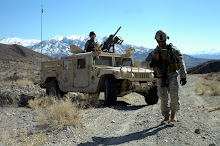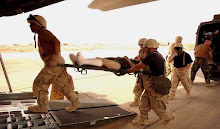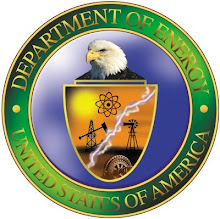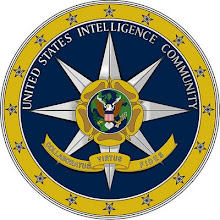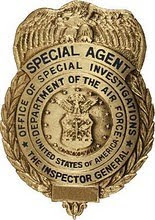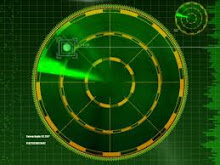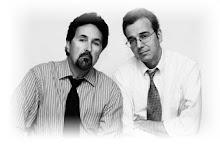By Steve Hammons
The Defense Advanced Research Projects Agency (DARPA) should be used in expanded ways to help the U.S. economy and American society, an official of the National Reconnaissance Office (NRO) wrote to President Obama.
In an open letter to Obama published Jan. 12, 2009, in Aviation Week & Space Technology magazine, Pedro L. Rustan wrote that "Expanding this entrepreneurial and innovative agency's role beyond traditional defense-related industries will help you rebuild the U.S. economy and create jobs.”
Rustan is director of the NRO’s Ground Enterprise Directorate. The NRO is an agency of the U.S. intelligence community.
“For more than 50 years, [DARPA] innovations have enhanced the Defense Dept., the intelligence community and commercial industry,” according to Rustan.
He told Obama that, “Expanding DARPA's role will cultivate our nation's entrepreneurial spirit and enable us to continue to lead the global economy.”
As Rustan pointed out in his letter, today’s Internet is the result of the earlier ARPAnet, developed by DARPA.
Although he focused on DARPA’s past, current and potential future activities, Rustan’s views might also apply to other organizations. One example is the not-for-profit independent venture capital firm In-Q-Tel.
In-Q-Tel provides funding for innovative R&D that helps the U.S. intelligence community. Could In-Q-Tel’s activities also be expanded to help America?
HUMAN ELEMENT
Rustan pointed out that nanotechnology, biotechnology and information/communication technology are three general areas that should be focal points. He also noted that human development, education and training are key elements.
”Refocusing DARPA to address both military and commercial areas cannot be successful without paying equal attention to the development of human capital,” he wrote. “DARPA should expand efforts in cognitive sciences,” Rustan said.
Taking his idea further, we might consider that leading-edge developments in cognitive sciences, neurosciences, behavioral sciences, human communication, studies of human consciousness and related fields seem to offer tremendous potential.
After all, activities of our defense and intelligence communities, as well as our educational, economic and cultural endeavors are all tied to human behavior, perception, understanding and the other elements of the human species and human civilization.
The “hard power” technologies that groups like DARPA and In-Q-Tel have traditionally nurtured can be expanded to include “soft power” elements. Soft power not only can greatly enhance hard power resources, but can also serve as stand-alone tools to make progress on many fronts.
TRANSCENDENT APPROACHES
Emerging understanding and leading-edge research of many kinds remind us that our world is rapidly changing, sometimes in ways that cause us great concern.
Safety and security, freedom and justice, creativity and innovation, natural resources preservation and conservation, social cohesion and cooperation, effective agriculture, sustainable energy, economic prosperity, improved education, human development and many other fundamental goals are worthy targets for increased and advanced efforts.
At the heart of these efforts and goals are the many aspects of human consciousness.
The study of this intriguing field is no less important than our R&D of advanced technologies that organizations like DARPA and In-Q-Tel have traditionally cultivated.
Similar to the defense and intelligence communities’ study of “anomalous cognition” and “remote viewing” which include interesting and promising elements of human awareness, we can expand activities to take the next steps in these areas.
Several years ago, when a former Navy SEAL officer wrote a graduate-level paper for the Marine Corps War College about remote viewing research and operations, he referred to these efforts as being part of “transcendent warfare” – a way of optimizing leading-edge research results and innovative approaches to successfully accomplish a wide range of missions.
The SEAL and NRO official Rustan may be on to something. Maybe we should expand our thinking beyond what has sufficed in the past when considering what is valuable for our defense and intelligence communities.
After all, we are all part of a larger “intelligence community” – the community of the United States of America and of the human race. Let us hope that this community is intelligent enough to move forward in positive and constructive ways.
American society and culture will survive and thrive if we cultivate the intelligence of our people, improve understanding of emerging developments and show the world that we are a powerful force for good on Earth, and beyond.
skip to main |
skip to sidebar

In the past 30 days, readers from approximately 40 countries or territories using about 20 languages visited the Joint Recon Study Group site.

To see more articles, scroll down the right-side column.

Steve Hammons

Articles from the Joint Recon Study Group site and Transcendent TV & Media site are included.
The Joint Reconnaissance Study Group is the San Diego-based, combined-service/agency, research-and-activities team in my novels "Mission Into Light" and sequel "Light's Hand." This site contains information of interest to the JRSG.
Home page: Joint Recon Study Group site
Readers from around the world visit this site.

In the past 30 days, readers from approximately 40 countries or territories using about 20 languages visited the Joint Recon Study Group site.
April 2021 threat alert: ‘Force protection’ for our troops now the responsibility of all Americans
First responders must deal with society’s problems, shortcomings, injustices every day
Could some UFOs be linked to Native American 'white stone canoe' legends, stories?
Wildland firefighter basic training available at community colleges, tech schools, training centers
‘Boomer remover’ coronavirus is bigger threat to WWII generation that saved the world
‘Black swan’ events that aren’t: Coronavirus, climate emergency, unidentified aerial phenonema
Reagan’s complete 1987 UN message on ‘alien threat’ overlooked: Grave danger here, now
Was Reagan briefed about UFOs and original ‘Day the Earth Stood Still’ movie?
My military draft lottery number was #165 during final Vietnam War years
“Keep On The Sunny Side,” by The Whites, from movie O Brother, Where Art Thou?”
Living along Ohio River for centuries, Native Shawnee called it ‘Kiskepila Sepe’ – ‘Eagle River’
Native American words around us: States, towns, rivers, lakes, terrain, plants, animals, military
Athens County, Ohio, was key spot when colonists, Redcoats fought Shawnee in 1774 battle
1787 Northwest Ordinance set course for Ohio, Indiana, Illinois, Michigan, Wisconsin, Minnesota
Smallpox-tainted blankets were 1763 bioweapon on northern Appalachian Mountains frontier
Diana Krall performs “Maybe You’ll Be There" live in Paris with Paris Symphony Orchestra 2001.
Books to read in 2021? Novels "Mission Into Light" and the sequel "Light's Hand"
Novel excerpt: Renew, prepare America with ‘Urgent Response Group’ for teens, young adults
Diana Krall performs “I Get Along” live in Paris with Paris Symphony Orchestra 2001.
Steve Tyrell sings “Give Me the Simple Life.”
Diana Krall performs “Love Letters” live in Paris with Paris Symphony Orchestra 2001.
Visit the article archives!

To see more articles, scroll down the right-side column.
Novel "Mission Into Light" overview on Amazon
Novel "Light's Hand" overview on Amazon
Adventures of the Joint Recon Study Group: Overview and synopses of activities and operations
Key chapter overviews: Points of interest in the novel "Mission Into Light"
Key chapter overviews: Points of interest in the novel "Light's Hand"
Multimedia rights available
English and foreign-language book rights, audio book and e-book rights for "Mission Into Light" and "Light's Hand" are available. Movie and TV rights are available.
I'm seeking agent representation for these works and rights.
Please contact Steve Hammons for more information at hammons55@gmail.com.
Feature film screenplay
I completed a feature film screenplay in 2006 based on “Mission Into Light” and “Light’s Hand” combining key elements of both novels.
The screenplay takes audiences into the adventures and discoveries of the Joint Recon Study Group and the relationships among team members, friends and associates as they explore leading-edge research and emerging transcendent developments.
I'm seeking agent representation for this screenplay.
.........................
I also wrote a TV series pilot script based on "Mission Into Light" and "Light's Hand" story. I'm seeking agent representation this script.
About the Author

Steve Hammons
About the Author
I was born and raised in southwestern Ohio near the Kentucky and Indiana borders, then went to college at Ohio University in the southeastern Appalachian region of the state near West Virginia.
I graduated with a dual major in communication (journalism focus) and health education (psychology focus) with a minor in pre-law.
Ohio U. is home to the respected Scripps College of Communication and E.W. Scripps School of Journalism.
I also completed two graduate-level courses in guidance counseling theory and method at Ohio U.'s College of Education, School of Applied Behavioral Sciences and Educational Leadership.
At the end of my undergraduate education at Ohio University, I moved to the beautiful American Southwest where I applied my education, continual training and and ongoing experience to related professional fields such as health care, journalism and special research areas.
My novels "Mission Into Light" and the sequel "Light’s Hand" are available in e-book and 6"x9" paperback from most online booksellers worldwide.
Readers review metaphysical-military-intelligence adventure novel ‘Mission Into Light’
My articles on DoD CultureReady blog, Defense Language and National Security Education Office
Transcendent TV & Media site
Past articles: Scroll down the right-side column for more articles.

Articles from the Joint Recon Study Group site and Transcendent TV & Media site are included.
New films, TV series, books tell stories of ‘Ohiyo’ River Appalachian mountain region
Hillbillies, pioneers and UFOs: Current major media projects explore southern Ohio
Well-known ‘Mothman’ case also about dedicated local journalist, Native history?
Film experts, fans celebrate rediscovery of Appalachian story ‘Spring Night Summer Night’
'Hillbilly' J.D. Vance, columnist Clarence Page find common ground in southwest Ohio roots
‘Phoenix lights’ UFO linked to multiple incidents around four-state Colorado Plateau?
UFOs, odd phenomena reported on perimeter of Colorado Plateau
Theory about 37th parallel and UFOs sparked book, TV shows, film concept
Sketchy dimensions: UFO investigations reveal need for caution, potential for beneficial discovery
Can UFO-acquired technologies help the U.S. economy?
Many Americans have Cherokee in the family tree
Americans with Cherokee roots can't rely on government bureaucracies to define them
Government-approved Cherokees don’t tell whole story?
Does tribal government politician speak for all Americans with Cherokee ancestry?
‘Official Cherokees’ disrespecting mixed-ethnicity Americans?
Could ‘Hillbilly Elegy’ author J.D. Vance have Appalachian Cherokee ancestry?
Journalism’s dilemma: Covering weird science
Movie ‘Sedona’ explores metaphysical mysteries, Nature’s beauty, human heart
Novel excerpt: Insight, understanding not always found in official reports, documents
Novel excerpt: From Sedona to Heaven – What is the dimension we call ‘Heaven?’
Interest grows in healthy aging, anti-aging, reverse-aging, transcendent aging
Analysis: Research company involved with UFOs opens up about activities
Startup company researching advanced tech, UFOs gives updates during Q&A
Leverage US resources to understand unknown objects encountered by Navy, defense expert says
US Navy UFO encounters: Space scientists speculate on ‘first contact’ with visitors
UFOs in the heartland: New movie, ‘Blue Book’ TV series set in southwestern Ohio
Year of UFOs, 1952, may play role in Disney movie ‘Tomorrowland’
UFO situation awareness: Phoenix conference hosts scientists, researchers, media, public
Appropriate security on UFOs probably 2-way street
Roswell was ET crash, says ex-CIA officer – what’s been going on since 1947?
Alleged briefing to Pres. Reagan: Original ‘Day the Earth Stood Still’ was UFO acclimation?
Beyond UFOs and extraterrestrials: Human consciousness
Journalism in media mix: New shows ‘Chasing UFOs,’ ‘Spacing Out’ help prepare public
Further UFO disclosure requires readiness, teamwork, education, intelligence
Disclosure, acclimation, security work together on UFO, ET challenges
Up to speed on UFOs and intelligent visitors? Revised ‘A.D. After Disclosure’ book released in May
Authors Zabel, Dolan explore adjusting to UFO truths in new book ‘A.D. After Disclosure’
Blog Archive
-
▼
2009
(34)
-
▼
February
(8)
- Beyond soft power and smart power: Transcendent power
- Deploy soft power communication on human conscious...
- Arizona film, TV projects explore unusual topics, ...
- Should U.S. government release more data on UFOs?
- New intel group IARPA should explore soft power
- Funding for ‘soft power’ R&D needed now
- DARPA, In-Q-Tel can expand efforts for U.S.
- Algae-based jet fuel gets DARPA funding
-
▼
February
(8)




























































